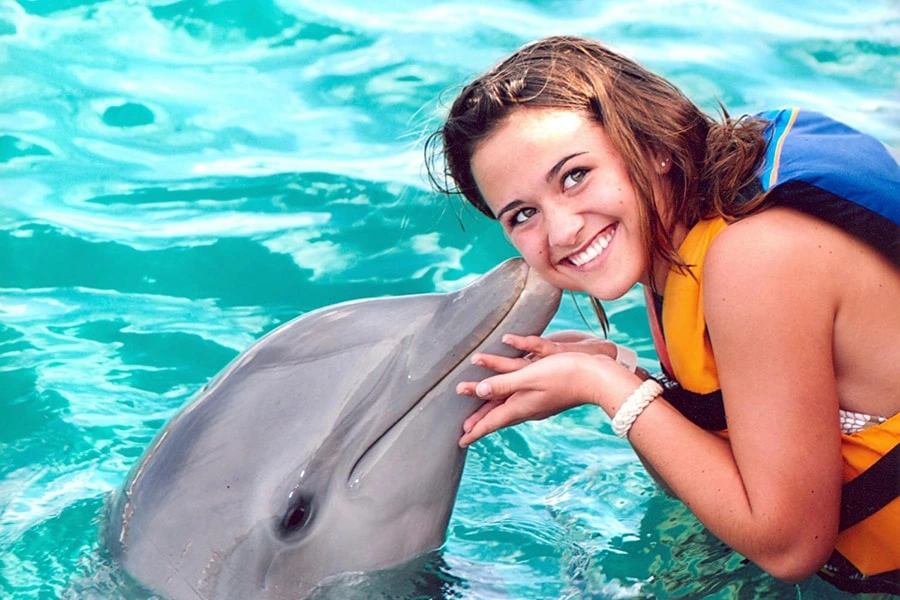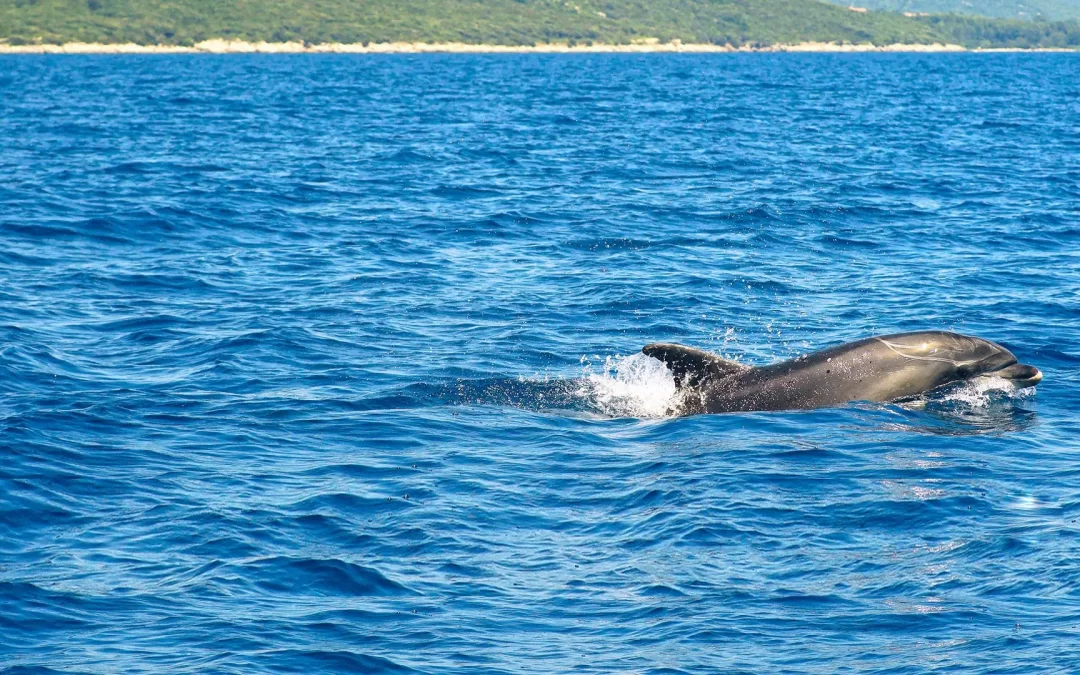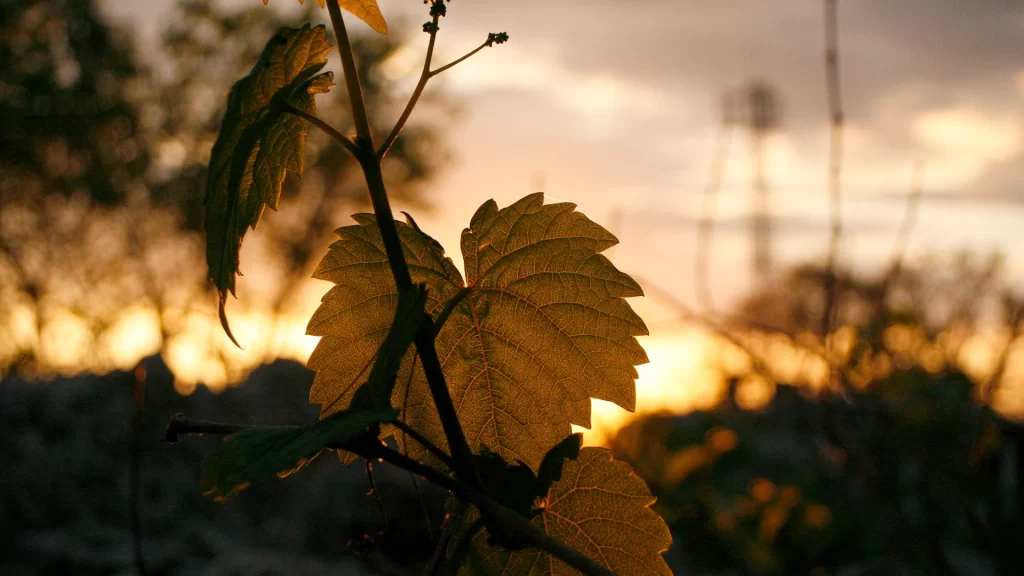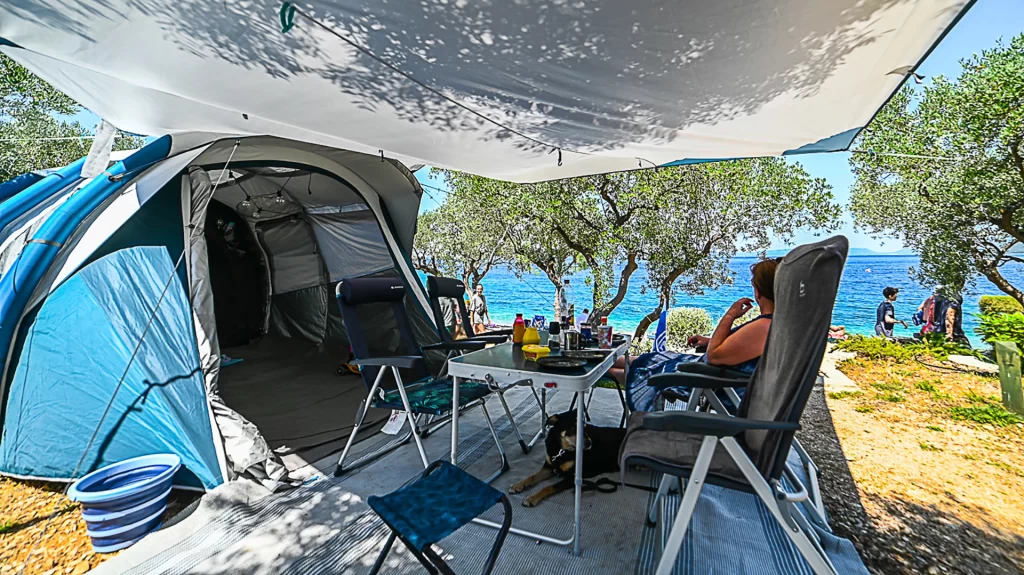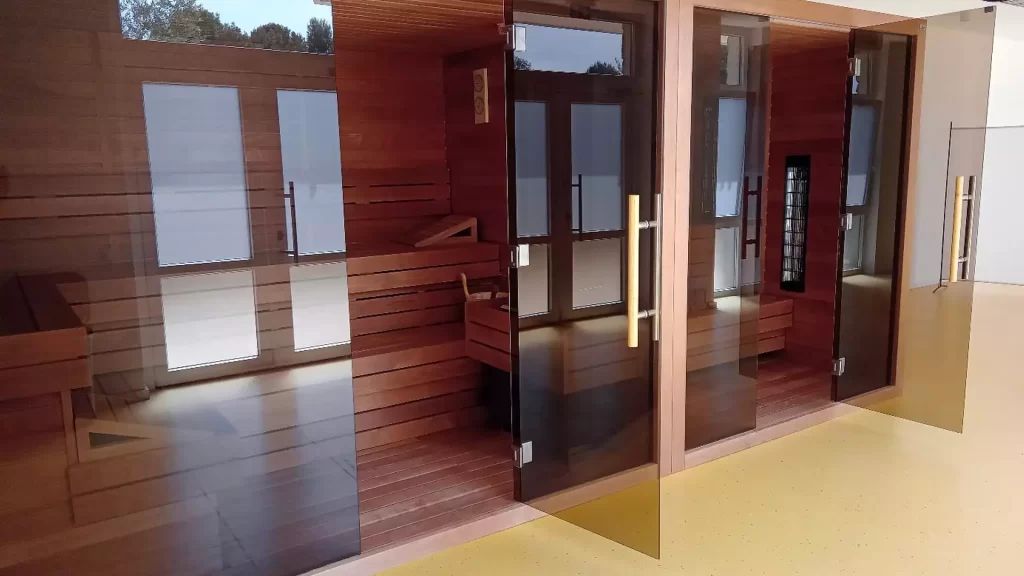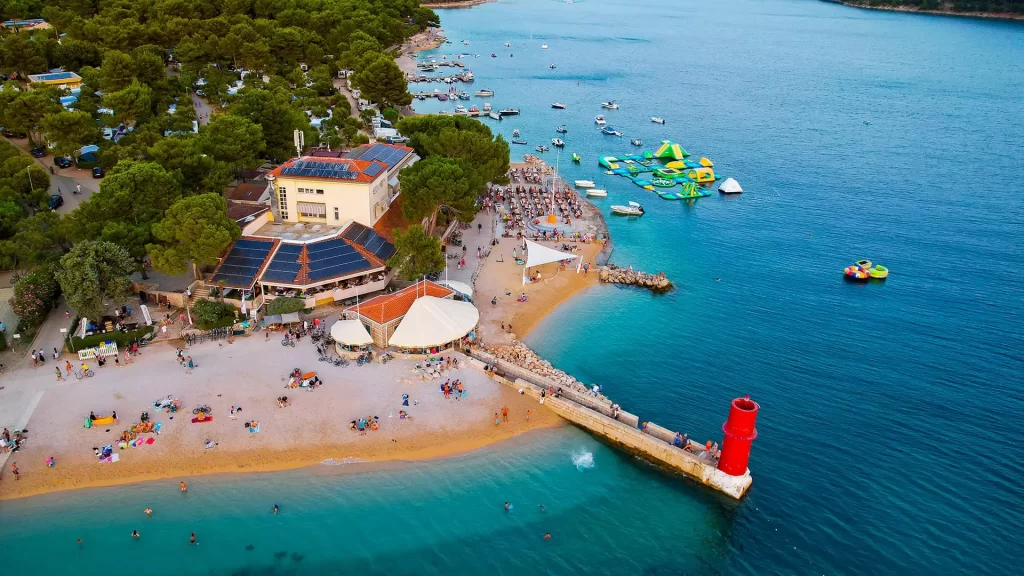A short ethical introduction
If you have always dreamed of dolphin watching or swimming with them, you are not alone. Recreational activities with wild animals are a favourite among everyone, but it is still necessary to understand the moral aspect of it.
When we go to the zoo or take part in a similar activity, we inadvertently contribute to the violation of animal rights and animal suffering, even though we love these creatures and even pay to see them.
But in order to avoid being complicit in this, here is our little guide on making your dreams a reality in a 100% ethical way by leaving the wild animal in its natural habitat with its family (which, in case you did not know, extends its life expectancy from 12 years in a cage to as many as 30-50 years!).
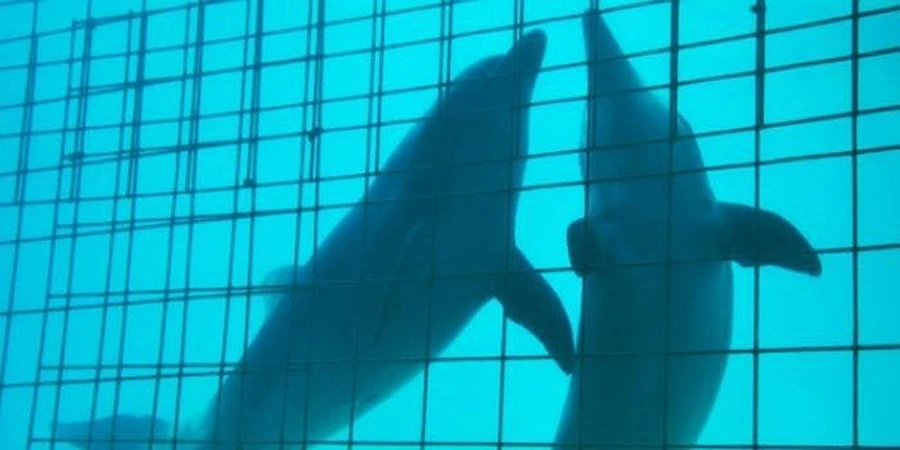
Dolphin watching in Cres
If you wanted to see dolphins on our shores, then you have come to the perfect place! Approximately two hundred dolphins play in our deep blue sea, and the Blue World Institute takes care of them on the neighbouring island.
Watching these wonderful mammals in the wilderness of the sea offers a much more authentic experience and an opportunity to see them in their natural habitat in which they thrive, and where these living beings with awareness and feelings no longer seem like some toys with fins. And you too become a part of the wilderness when you have the right moral compass.
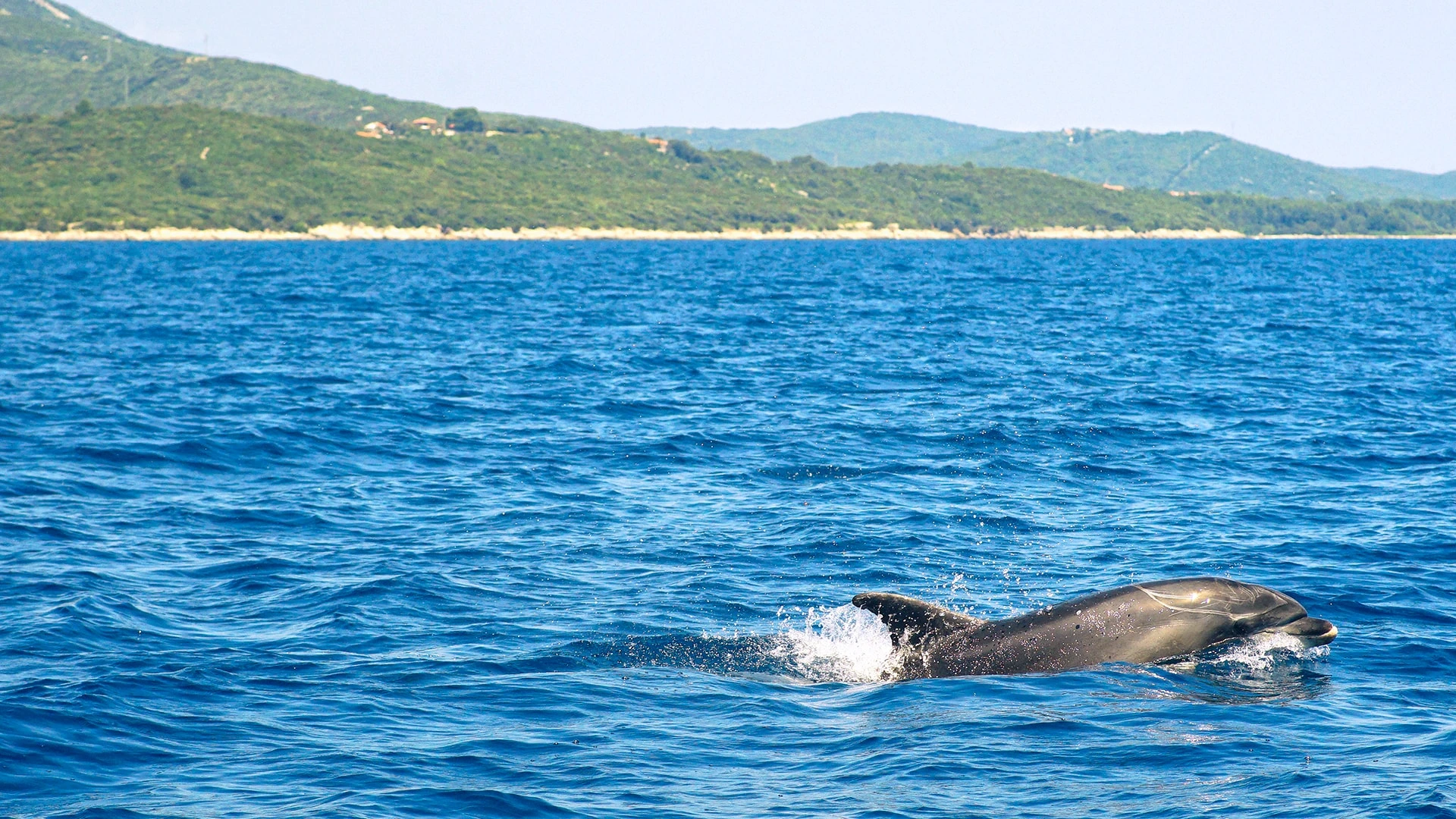
Take a boat from Kovačine Camp
Take a boat trip from the shore of our Camp to the open sea in search of dolphin watching hotspots! They are curious by nature and are likely to approach the boat, but if they do approach you, slow down the boat and keep parallel to their course. Do not drive your boat directly towards them, or they will get scared and swim away! Maintain the boat engine in neutral or even switch it off, and good dolphins will give you a chance to watch them jump and play without any carefully orchestrated zoo cage routines.
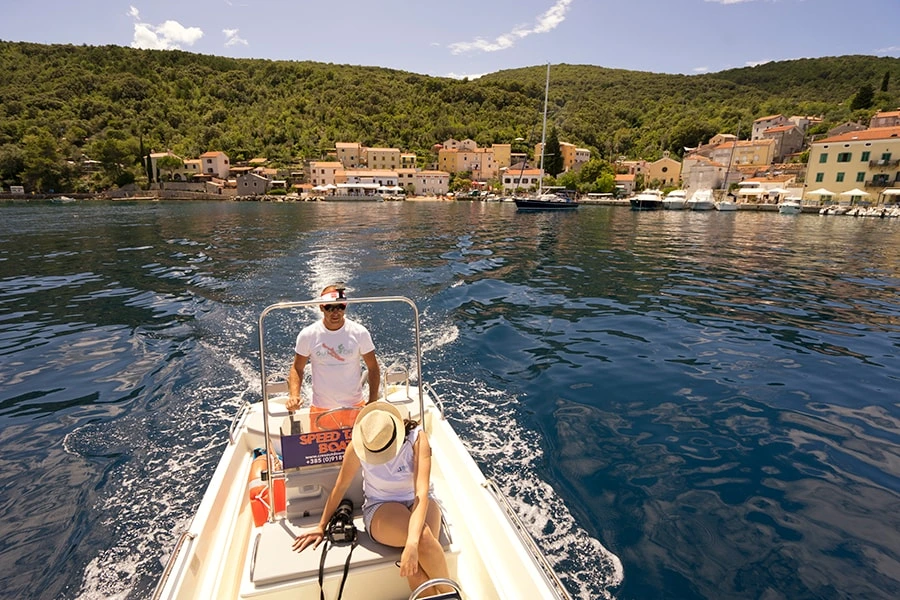
Don’t feed them
There is no bait that can attract dolphins. The curious nature of dolphins often leads them to explore, and they are free to decide whether to approach. It is important not to feed them on boat trips, because, firstly, you do not know what dolphins like and can eat, and secondly, you do not want them to become dependent on tourism and neglect their hunting. Feeding them could have disastrous consequences, as they would have nothing to eat out of season when there are no tourists to feed them.
Good dolphins prefer to catch fish together, and they especially like hake, red mullet, saddled seabream and similar fish. When hunting, they use high-frequency sounds to search for prey and get an acoustic map of their environment. Supersonic, isn’t it?
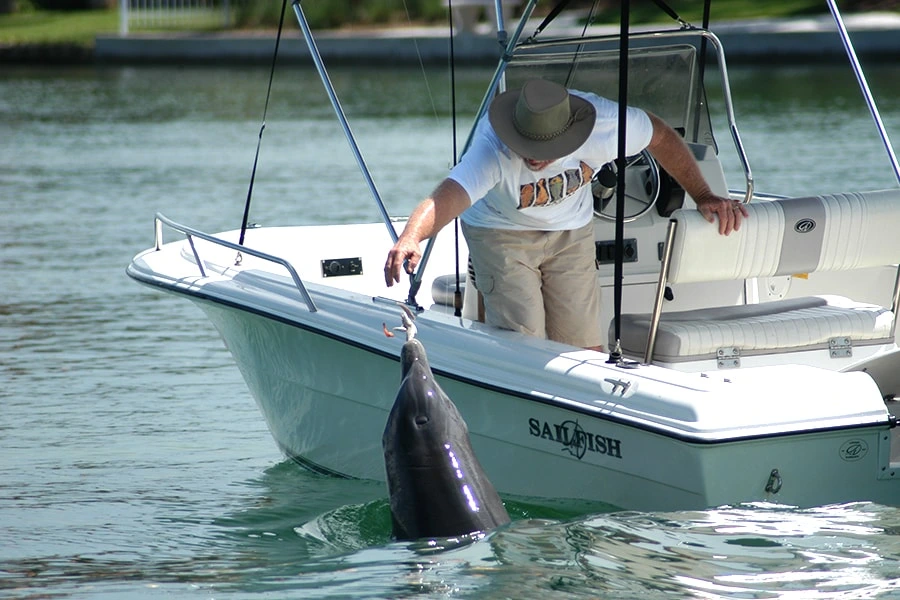
Watch them from the beach of Kovačine Camp
If you like dolphins, but you are not the type for close encounter adventures on the open sea, you can stay on our beautiful beach of Kovačine Camp where you will find new free binoculars that can turn in all directions to locations where, with some luck, you can see dolphins from the shore while sipping your favourite drink, and if you focus on distant Valun with binoculars, you might even see some swimmers there. We are kidding, we do not see that much detail, not even with binoculars. But how do dolphins see the world?
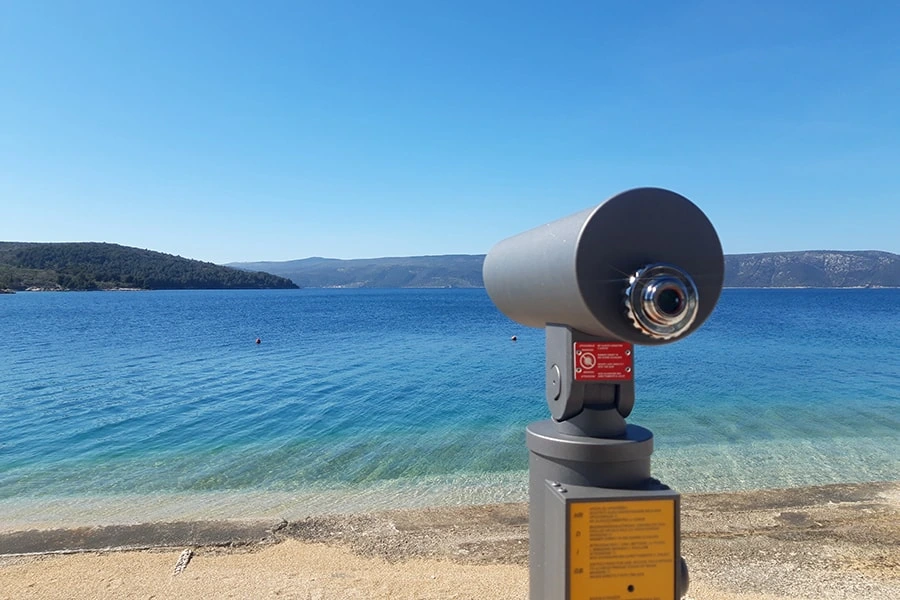
How do dolphins see us?
While watching dolphins through binoculars, you may wonder what we look like to dolphins. Thanks to advanced technology, we can now determine how these beautiful animals see us.
Dolphins recognize people and objects based on sounds. Their brains act like cameras, scanning an object or person with high frequency and remembering each movement as a separate photo. Every dolphin’s “click” is, in fact, a pulse of pure sound that modulates into human form. So not only do we take photos of them, but they take photos of us too!
Diving in the heart of Kovačine Camp
Discover the vast underwater world brimming with marine life. Kovačine Camp is a place where diving promises an amazing water experience. So, put on your diving equipment and dive into an adventure, maybe even catch sight of a dolphin from afar! We do not recommend swimming with dolphins, as it can be dangerous.
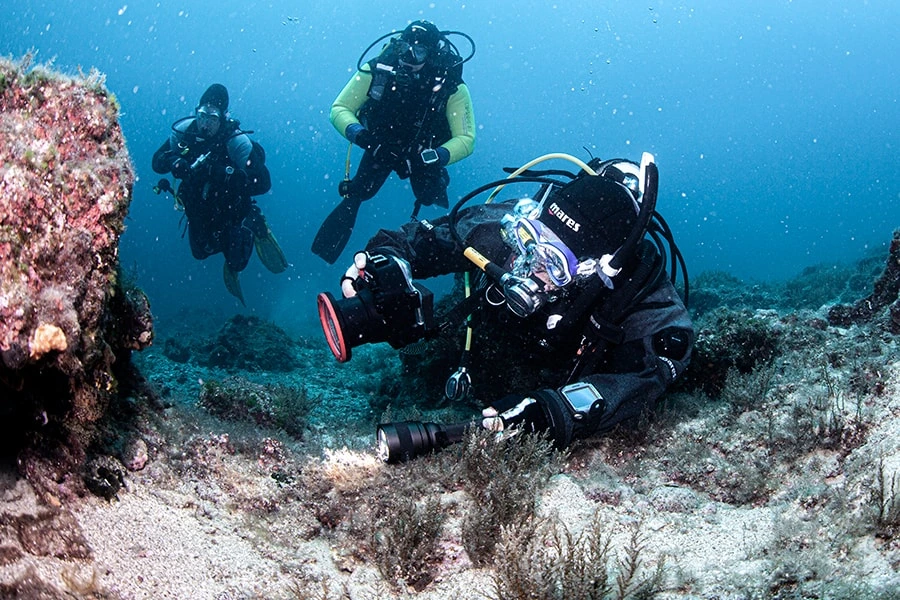
A special whistle for you?
Apart from humans, dolphins are the only animals that can call their special ones by special names, using whistles instead of words. They also choose their own name: it is a whistling signature that describes them. It would look like a man shouting: “Hey, you there! I’m Peter, I’m an adult healthy man and I do not wish you harm!” Who knows, maybe a name has already been chosen for you too?
The good dolphins and the good human
Some people believe that dolphins activate the heart and “dolphin consciousness”, a multidimensional information field where the ancient knowledge of Atlantis is hidden. Whether true or not, we can certainly confirm that the good dolphins are intelligent, joyful, and compassionate. Maybe that is why they are called “good dolphins”?
Either way, all of this is certainly a good reason for us to be kind to them. Maybe then, when we meet them in the sea near Kovačine Camp, we might be deemed worthy of their whistle “Hey, good human!”.
The good dolphin and the good human. Such species are the most popular, right?
And in our Kovačine camp and in the sea in front of it there are plenty of them – and in pods!
That is why we reach out to you and whistle – visit us!
